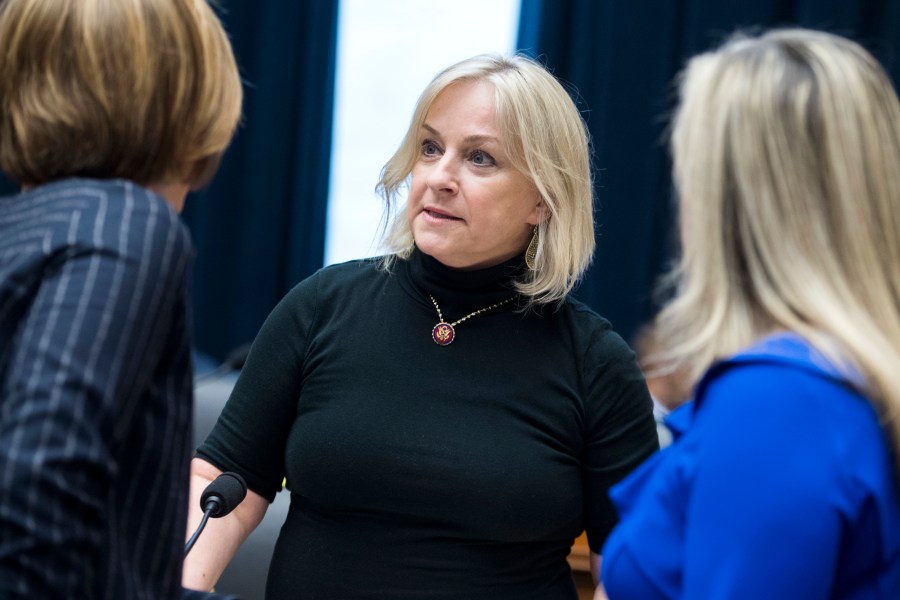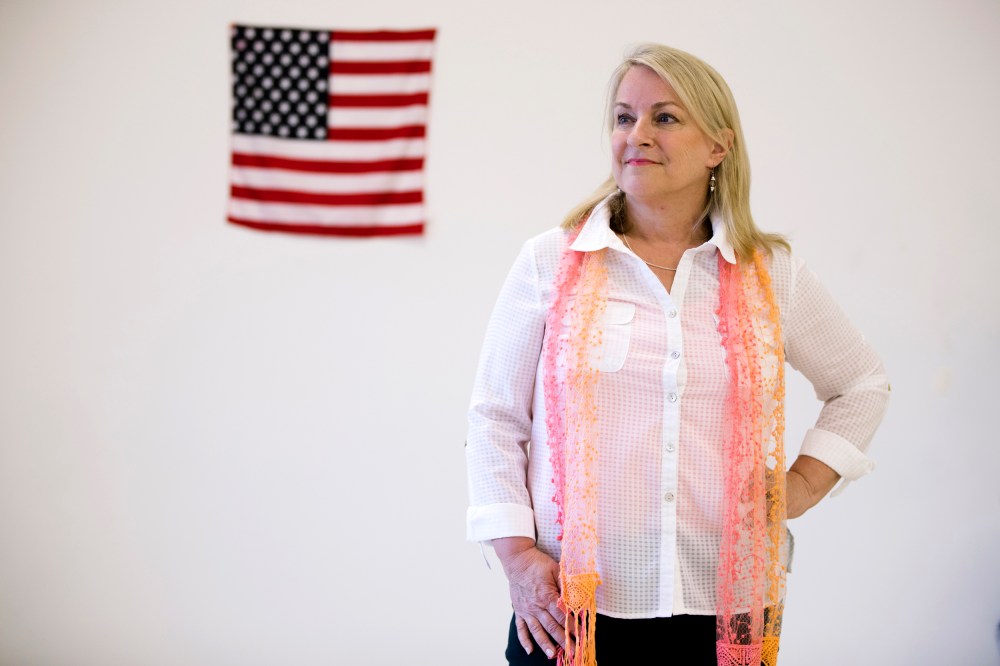It had only been hours since Rep. Susan Wild (D-Penn.) received a sweet text from her partner, Kerry Acker, earlier this year. And it had been less than a day since they hung up the phone after menu-planning late into the night for the weekend’s Memorial Day barbecue with friends. So Wild was beyond devastated when she learned on Saturday morning that Acker had died by suicide.
“It was just a complete and utter shock to me,” Wild told Know Your Value. She and Acker met in law school in the early 1980s, then rekindled their relationship in 2002. Wild, a mother of two from a previous marriage, was drawn to Acker’s humor and intellect. He loved running, traveling and cheering Wild’s successes as she won a Republican-held congressional seat in the 2018 midterm elections and was sworn into office early this year. He had been planning to join her in Washington.
“Nothing ever prepares you for that call, let me tell you,” Wild said. “Even when you think, as I did, that there’s some mental issues, depression, that kind of thing, you just never are ready for that call. You never expect it to happen.”
Now, Wild is channeling her grief by working on suicide prevention efforts and increasing access to mental health care, especially during September, which is National Suicide Prevention Month. The more she speaks publicly about Acker, the more she sees how prevalent the issue is.

“I now hear from people probably several times a day — not a week, but a day — reaching out to me telling me their personal story,” Wild said. “It’s just kind of staggering to me that there’s so much of this, and it’s really, in my view, been very much neglected.”
She’s working on legislation to make mental health care more affordable and easier to obtain, with specific efforts geared toward groups that experience higher rates of suicide, like veterans and college students. She’s also focusing on family members dealing with the aftermath of a loved one’s suicide.
“I will say firsthand that as much as people feel bad for you and grieve for you, they don’t really understand how badly you need your own mental health care after something like this happens,” Wild said. A bill she’s working on would treat suicide in the family as a “qualifying life event,” a term used by insurance companies that would give people an immediate opportunity to change their health care coverage. (Typically, that can only be done once a year during open enrollment, or immediately after a significant life change like a marriage or birth.)
Wild said it’s no surprise she’s thrown herself into her work, a tactic she used throughout her life to cope with adversity. And while she acknowledged how difficult it is to speak about Acker’s death, she’s moved by the number of people who share their own personal stories with her as a result.

“I do find it to be therapeutic. When I hear that I can help somebody, when people contact me and they tell me that they’ve either been suicidal or that they have a spouse or family member who is, you know It gives me a sense of purpose,” Wild said. “But… I don’t know that that actually helps me deal with my own issues.”
Wild didn’t take the decision to speak about her devastating loss lightly. As she kept busy in her Washington, D.C. and Allentown, Pennsylvania offices last spring, she didn’t speak publicly about Acker’s death until the one-month anniversary neared. From a podium on the floor of the House of Representatives, she spoke of her beloved partner.











